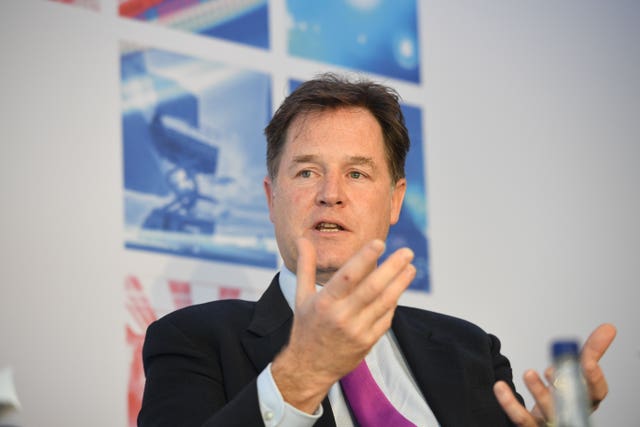
Nick Abbot 10pm - 1am
17 September 2024, 13:04

The social media giant will now require anyone aged under 16 to get a parent’s permission to change new default settings in a major safety update.
Instagram is to place all teenagers on the platform into new Teen Accounts, with strict protections overseen by parents turned on by default, in a major safety update by parent firm Meta.
Under the new system, those under 16 will need a parent’s permission to change any of the new default settings which will be applied to their account, which include accounts being automatically private, messaging restrictions limiting them to contact only with those they are already connected with, and Meta’s strictest sensitive content settings.
The announcement comes as social media platforms continue to face regulatory pressure to better protect users, particularly children, from harmful content online – with the Online Safety Act that will require firms to protect children from such content due to fully come into force in the UK next year.
Platforms, including Instagram, have previously been accused of failing to keep younger users away from harmful material on their sites, with many campaigners calling for stronger regulation to force companies to respond.
Former deputy prime minister Sir Nick Clegg, now Meta’s president of global affairs, said the aim of the change was to “shift the balance in favour of parents” when it came to using parental controls, while also hoping it would “act as a catalyst for a wider debate” around enhanced online safety tools.
Teen Accounts will also have their interactions limited so that only people they follow can tag or mention them, as well as be sent a notification telling them to leave the app after an hour’s use each day, and will have sleep mode on by default, which will mute notifications and auto-reply to direct messages between 10pm and 7am each day.
Alongside the protections, parents will also have the option to see who their teenagers have been messaging in the past seven days – though not the messages themselves, set daily time limits for Instagram app usage, block app use for specific time periods and see the topics their child has been looking at.

Speaking to the PA news agency, Sir Nick said: “This is a very significant moment … the common refrain we keep hearing from parents is that ‘we want to exercise our responsibilities and obligations as parents’, but across the multiple apps that young people now use, parents were being left somewhat confused and disempowered from playing their role as parents.
“This (change) really tries to very meaningfully shift the balance in favour of parents by basically putting teens into the strictest default settings over what content they see, who they can be connected with, what time they can spend … and crucially, if you’re under 16, they’ll have to ask mum and dad if they can change those settings.
“And yes, from our point of view it might mean that some teens may use our apps less, but we feel, given everything we have learned and heard over the last, crucial years – and quite rightly, we’ve been put under an immense amount of scrutiny on these issues – we felt it was time now to shift the playing field in favour of simple, transparent, easy-to-use controls for parents, that’s the motivation behind this.”
New teenage users who sign up to Instagram from today will be placed into a Teen Account, Meta said, with existing users set to begin being moved onto the new system next week, with plans to have teenagers in the UK, US, Canada and Australia on the new accounts within two months, and those in the EU later this year.
Sir Nick added that a “wider ecosystem-level debate” was needed around age verification tools which worked across app ecosystems, rather than having to be implemented by each individual platform.
“We hope this will act as a catalyst for this wider debate because there isn’t a world in which app-by-app solutions are sufficient,” he told the PA news agency.
“That’s why we’re such an advocate of using the simplest, one-and-done moment to verify age and to give parents meaningful control, which is at the moment an app is downloaded from an app store – so to introduce app store-level age verification, which is not a huge lift because (Apple’s) iOS and (Google’s) Android collect all that data already.”
The former Liberal Democrat MP argued that this type of tool was the “only workable way” to introduce “meaningful change” for teenagers.

“Some people will say ‘Meta is trying to shuffle off its responsibilities’ – nothing to do with that at all. We wouldn’t be making these announcements today if we where somehow trying to shuffle off our responsibility. We take our responsibility very seriously,” he said.
Sir Nick also said the potential loss of teenage users to rival platforms was “not reason enough” to not make the safety changes, and that the social media giant would rather be “at the front end of changes” within the industry.
“I don’t think we should hide from the fact that there has been a very lively debate about this for a long, long time within the company,” he said.
“Of course, there is a risk that teens will gravitate to other apps which don’t have these controls or use Instagram less than they do now, but we came to the view that this was not reason enough to not give parents the simplicity, transparency and controls they’ve been clamouring for.
“Secondly, we’d much rather be at the front end of the changes which clearly need to happen in the industry, rather than be dragged along in the wake of changes introduced by others.
“This is a big societal debate and it’s one which inspires, quite understandably, very, very strong emotions, because you’re dealing with the thing that people care about more than anything else in the world – their own children.
“Regulators need to play a role, companies need to play a role, and parents and families need to play a role.”